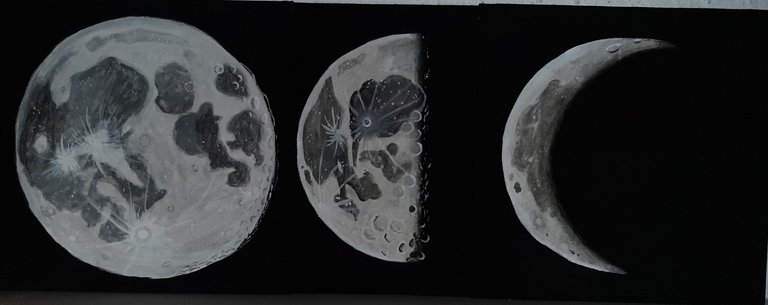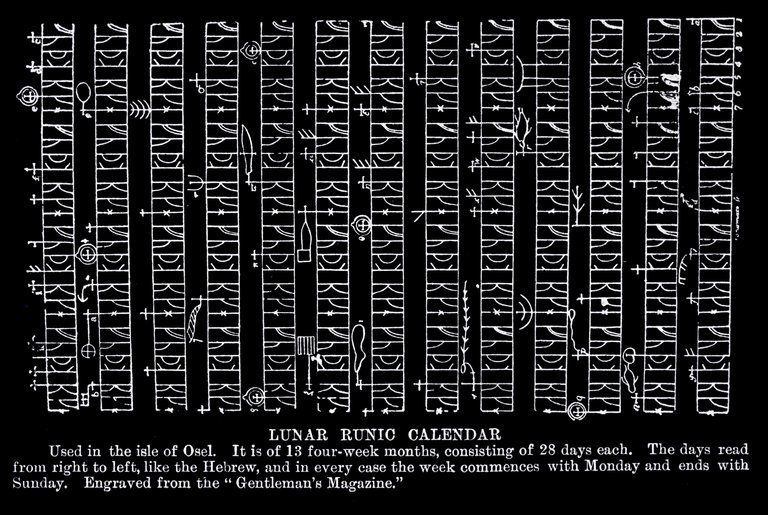When I look at a calendar, I see days, weeks, months, and the entire days on the calendar makes up a year. Then we start to see that there are natural astronomical occurrence to why we have these events, more like astronomical cycles. Starting with a Year which is the time taken for the earth to orbit the sun once, month being the length of a moon's full cycle, and day being the time it takes the earth to rotate around its axis but in all this, how do we come about week, since it doesn't have any astronomical cycle event to it?
If we were to divide the 365 days of the year into seven, we will not be having a whole number, rather we will be having fractions and 7 is a prime number but then it is used in many culture and myths. In fact, some culture see seven as a number of perfection, seven deadly sins, and we even have the mercury seven who were the first astronauts selected by NASA for space flight program.
If we look at the moon, we could have chosen 12 as a convenient number for the week being that 12 is less complicated and if we are to look at the moon cycle while it is not exactly 12, it is still meaningful. But ancient history tells us that the Greeks identified seven planets including the sun and the moon as seven gods, and so placed them in charge of every hour. At the end of the arrangement, it fell into eight days but when they decided to name each day by the first god of the hour, they were able to name them as Saturn, Sun, Moon, Mars, Mercury, Jupiter, Venus, and Sarturn as the eight day that completed the calculating day. Seeing that 1 god can't hold 2 days, it was reduced to 7 with days.
It makes a little sense now seeing Saturnday, Sunday, Moonday, Marsday, Mercuryday, Jupiterday and venusday. As other culture started to adopt it, and Christianity adoptd it, they decided to move the first day to Moonday, like Monday as it is today. As time went on, nortern Europeans decided to adopt the days of the week, and decided to add their own gods to replace some greek gods days like Marsday, mercuryday, Jupiterday and Venusday with Tiwesdaeg, Wodnesdaeg, Punresdaeg, and Frigedaeg accordingly.
While so many culture took after the Greek and Romans to name the week after gods, some culture still have exceptions like Icelandic, German, and Finnish that named wednesday as the middle of the week. While the Gaelic language of Scotland and Ireland refer to wednesday, thursday, and friday as fasting days and in Iceland, saturday in Icelandic means to bathe in a pool. Ancient Jews used the seven day of creation from the Hebrew bible while the seventh day was named after Shabatu the ancient festival of full moon in Babylon.
The moon can also be used to track days from crescent to full moon which was used to calculate a month. Measuring a lunar moon cycle, each of the 4 quarter moon cycle is separated by 7 days, and 1 new moon to full moon is 14 days which is about 2 (7 days). All these things happened long ago before we began to learn and unlearn a lot of things like the moon not being a god but rather a rock that crashed into earth and stuck there, and that we had more than seven planets, we just decided to let the seven days be since it was difficult to find the origin of these days itself.
Reference
https://armstronginstitute.org/337-why-the-week
https://online.ucpress.edu/SLA/article-abstract/3/2/128/67651/Christianizing-the-Planetary-Week
https://study.com/academy/lesson/the-connection-between-the-seven-days-of-the-week-astronomical-objects.html
https://adsabs.harvard.edu/pdf/1999jrasc..93..122f
https://arxiv.org/pdf/1407.6246
https://www.jstor.org/stable/1257009


